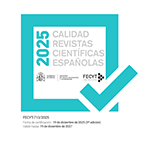Against a voiceless world: Albert O. Hirschman’s political economics as an alternative to public choice
Abstract
This article proposes to analyze the contributions of Albert Hirschman to political economy. Although he was explicitly affiliated to any school of thought, Hirschman worked with both economics and political science to understand questions such as ‘why do people vote and participate in politics?’. He was disappointed with what mainstream economics could provide and elaborated the Exit-Voice-Loyalty (EVL) framework, to understand mechanisms of action in politics and the economy. His EVL framework has been widely read, but it did not develop a paradigm around it and was ignored by economists due to its lack of formal models. Hirschman went on to work on the political economy of citizenship in his works (Hirschman, 1977, [1982] 2002, 1991), in order to provide answers to questions of political economy away from rational choice theory, which he considered harmful.
Downloads
Article download
License
In order to support the global exchange of knowledge, the journal Iberian Journal of the History of Economic Thought is allowing unrestricted access to its content as from its publication in this electronic edition, and as such it is an open-access journal. The originals published in this journal are the property of the Complutense University of Madrid and any reproduction thereof in full or in part must cite the source. All content is distributed under a Creative Commons Attribution 4.0 use and distribution licence (CC BY 4.0). This circumstance must be expressly stated in these terms where necessary. You can view the summary and the complete legal text of the licence.
Iberian Journal of the History of Economic Thought is an open access journal that does not charge authors for article processing (submission, review or editing) or publication.









